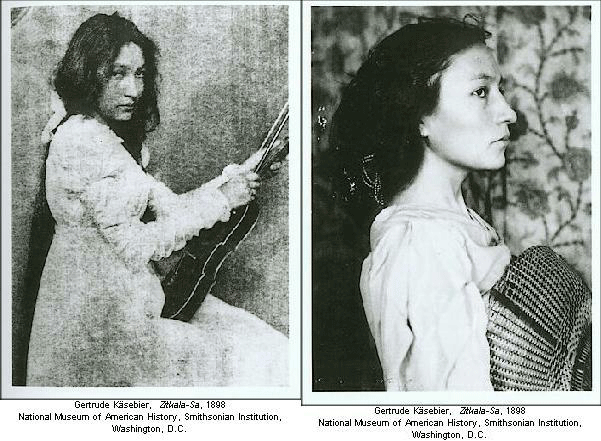 Gregory Eiselein
Gregory Eiselein Gregory Eiselein
Gregory Eiselein
 |
|
Zitkala-Sa
|
Authors to be studied are Mark Twain, Cabeza de Vaca, Zitkala-Sa, Harriet Jacobs, Emma Lazarus, Langston Hughes, Saul Bellow, Maxine Hong Kingston, Leslie Marmon Silko, and Ana Castillo.
Course requirements include a final examination, two papers, a presentation, and some shorter writing assignments.
Course Texts (available at The Dusty Bookshelf, 700 N. Manhattan Ave, in Aggieville across the street from Varney's)
Mark Twain, Pudd'nhead Wilson
Álvar Núñez Cabeza de Vaca, Adventures in the Unknown Interior of America
Zitkala-Sa, American Indian Stories, Legends, and Other Writings
Harriet Jacobs, Incidents in the Life of a Slave Girl
Emma Lazarus, Selected Poems and Other Writings
Langston Hughes, Selected Poems
Saul Bellow, The Adventures of Augie March
Maxine Hong Kingston, Tripmaster Monkey
Leslie Marmon Silko, Ceremony
Ana Castillo, My Father Was a Toltec, and Selected Poems
Plus a small coursepack of readings available in the Eisenhower Hall copy center.
Greg's Home | Department of English | Graduate Studies | Cultural Studies | Visual Culture | Kansas State University |
This page was updated on 26 April 2004. Other pages on this site may have been updated more recently.
These pages are copyright © 1995-2004 Gregory Eiselein.